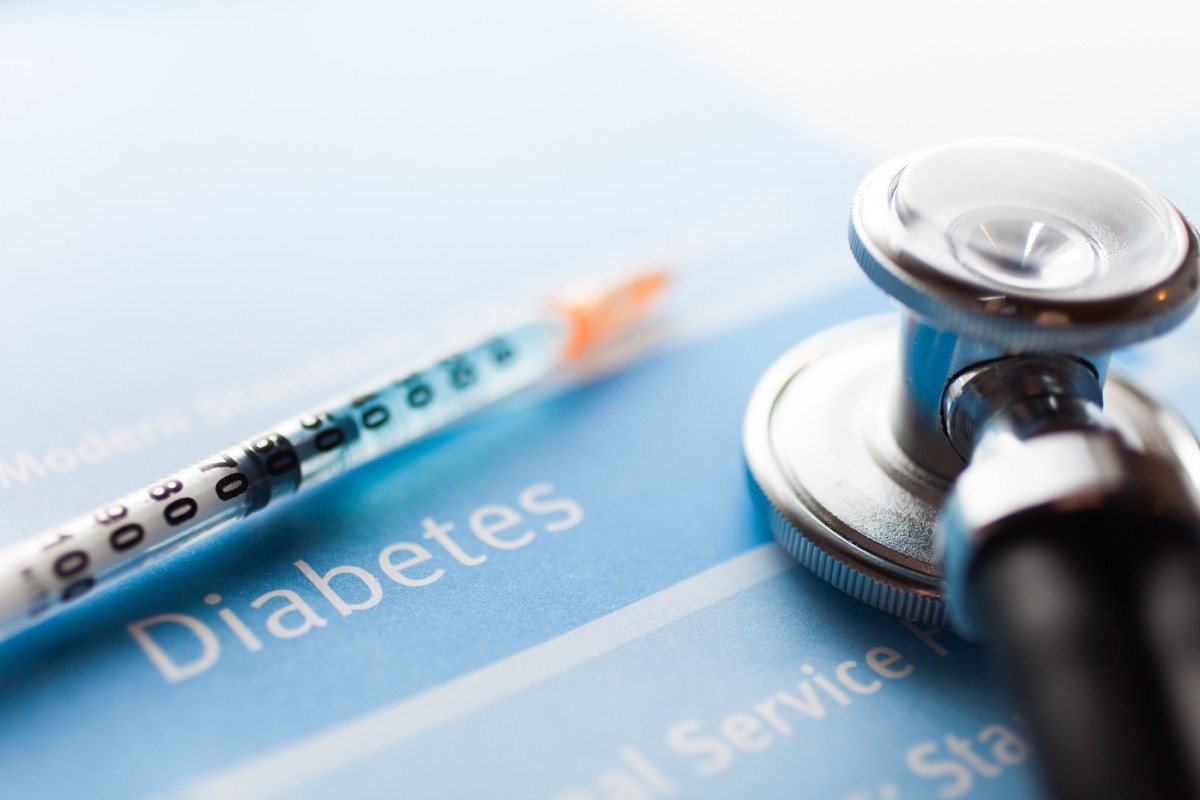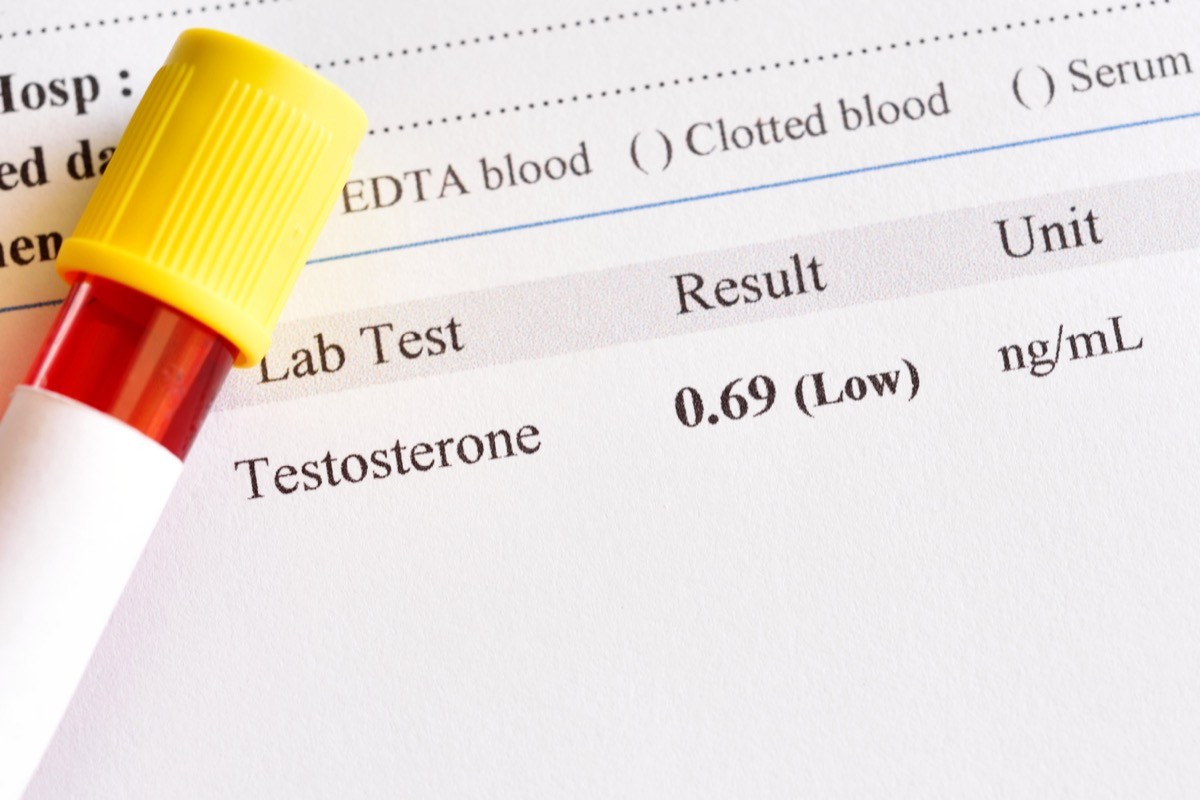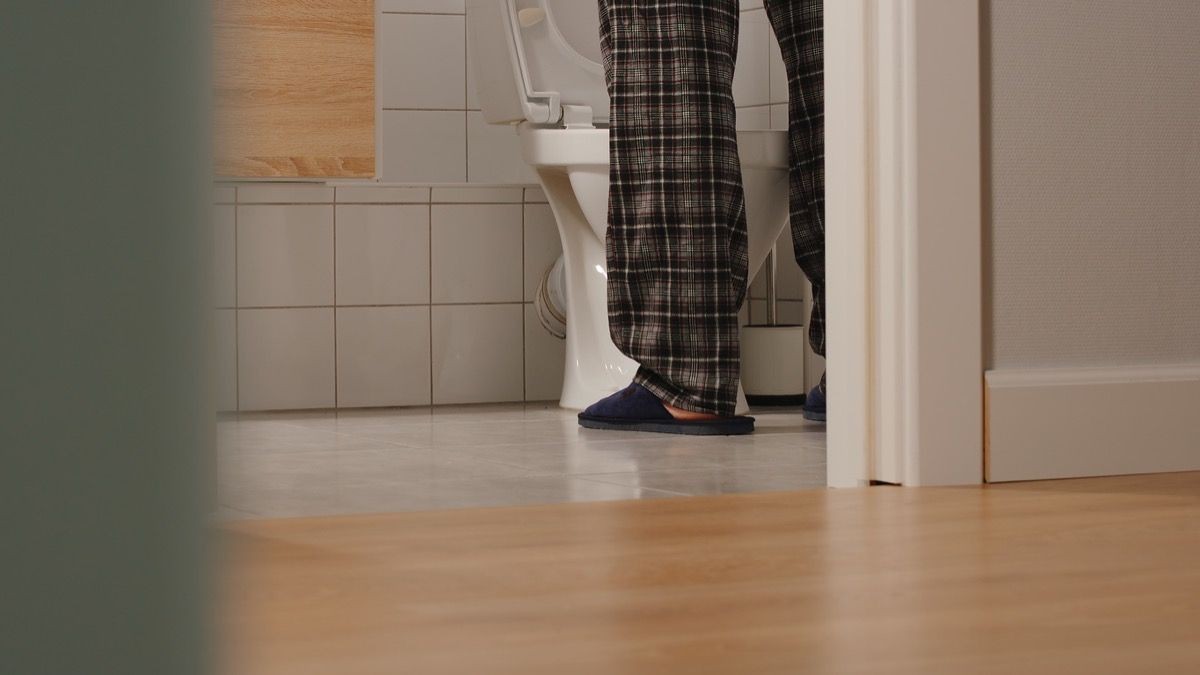The Essential Health Check Every Man Needs by 45

The stereotype that men avoid the doctor is unfortunately based in fact. “There is no demographic that utilizes healthcare resources less than men between the ages of 18 and 45, followed closely by men ages 45 to 64,” urologist Dr. Joseph Alukal tells NewYork-Presbyterian Health Matters. “It’s important to have a relationship with a doctor you trust, whom you can check in with and figure out how to get screened or tested as soon as possible if needed. Even if you’re in your 20s and 30s and are generally healthy, take this opportunity to create a relationship with a doctor you are comfortable with.” Age 45 is when men should start screening for colorectal cancer, and 55 for prostate cancer—but what about earlier screenings? Here is one essential health check every man should have before 45.
RELATED: 7 Secrets Doctors Don’t Want You to Know.
Screen For Diabetes

46.4% of men aged 20-39 in the United States are obese, making it important to screen for diabetes. “If you’re older than 45 or have a body mass index above 25, no matter your age, the American Diabetes Association recommends that you be screened for diabetes,” says Mohammed Solaiman, MD, via the Mayo Clinic Health System. “Type 2 diabetes and prediabetes symptoms can happen slowly and may not be noticeable, so staying aware of your blood sugar levels and risk of developing diabetes is essential.”
Type 2 Diabetes and Testosterone

Diabetes can impact testosterone levels. “Type 2 diabetes doubles the risk for having low testosterone,” says Keck School of Medicine. “When the male hormone drops, it can result in symptoms such as low energy, muscle loss, depression and sexual problems, including low libido and erectile dysfunction (ED). Your primary physician can check your testosterone level and offer medications to treat the problem.”
Diabetes and ED

Men with diabetes are 3 times more likely to have erectile dysfunction, according to the CDC. “Some patients with ED do not realize that their diabetes plays a role,” says Mike M. Nguyen, MD, a urologist at Keck Medicine of USC and associate professor of clinical urology at the Keck School of Medicine of USC. “These patients often also have obesity and hypertension, additional risk factors for erectile dysfunction.”
RELATED: Things You Shouldn’t Do at a Doctor’s Office.
Diabetes and Overactive Bladder

Peeing more than usual, including at night, could be a sign of diabetes in men. “Many conditions that affect your bladder or prostate can lead to having to wake up to pee,” says the Cleveland Clinic. “Not treating these underlying conditions could lead to continuing to have to wake up to pee or the condition worsening. The other complication of nocturia is a loss of quality sleep, which is important to your overall health and well-being.”
Heart Disease Concerns

Diabetes is linked to heart disease, another serious issue for men. “What most patients don’t realize is that coronary heart disease is the leading cause of death among diabetics — and erectile dysfunction has been shown to be an early warning sign of cardiovascular disease particularly in the male diabetic,” urologist Laurence A. Levine, MD, tells Rush University Medical Center.
Keep Up With Screenings

Men should keep up with screenings and talk to a doctor about any concerns. “If you’re having health complications from diabetes, it could be a sign that your blood sugar is too high,” says the CDC. “Healthy habits like being active and eating a balanced diet can help you manage diabetes, and prevent or delay complications.”